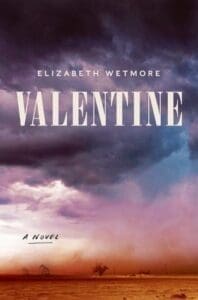Book Blurb:
England, 1840. For the two decades following the death of her beloved sister, Jane, Cassandra Austen has lived alone, spending her days visiting friends and relations and quietly, purposefully working to preserve her sister’s reputation. Now in her sixties and increasingly frail, Cassandra goes to stay with the Fowles of Kintbury, family of her long-dead fiancé, in search of a trove of Jane’s letters. Dodging her hostess and a meddlesome housemaid, Cassandra eventually hunts down the letters and confronts the secrets they hold, secrets not only about Jane but about Cassandra herself. Will Cassandra bare the most private details of her life to the world, or commit her sister’s legacy to the flames? Moving back and forth between the vicarage and Cassandra’s vibrant memories of her years with Jane, interwoven with Jane’s brilliantly reimagined lost letters, Miss Austen is the untold story of the most important person in Jane’s life.
My Review: 3.5 stars – Guest Review
Miss Austen is a fictionalized story about Jane Austen’s sister Cassandra, and her insight into Jane’s life. Many readers may assume from the title, that the story is about Jane Austen, and will be surprised to find out that Cassandra is a fascinating heroine in her own right. The narrative flawlessly switches back and forth between Cassandra’s past (1795) and her present, (1840) as she arrives in Kintbury as the executor of her sister’s literary estate, and attempts to protect and preserve her sister’s reputation by destroying correspondence Jane had written. The letters, presented in flashback, which the author says in her afterword were entirely imagined, tell the story of the relationship between Jane and Cassandra and how important they were to each other’s lives. The letters give the reader insight into what led Cassandra to burn most of them.
There were many characters in the extended Austen family. The author’s vivid characterizations make the reader feel part of their lives as they discover their eccentricities and secrets.The dialogue is intelligent and witty, and reflects the language of that era. Characters including Jane and Cassandra’s mother, Isabella Fowle, and the housemaid, are humorous and sharply drawn. The novel is richly detailed in time and place. I felt totally transported to Kintbury in the 1840s, and to many other settings throughout England during the flashbacks, which were historically accurate. At the beginning of the book, the author provides a detailed list of the three families which included all of their relationships with each other. She also includes a map of the various locales throughout the novel. Even with this helpful guide to the families, I found it difficult to keep track of all of the family members and interrelationships, and needed to constantly refer back to the detailed chart. The book was not lengthy, but it was a slow read for me.
The most fascinating part of this novel was the strong character study that Cassie set against the depiction of the social mores and roles of women during the era. During this time period it was assumed that “the divine blessing of a male presence somehow made a household more desirable, or superior.” The book focuses on Cassie’s choice to remain single or a “spinster”, and the associated stigma during the Victorian era. Cassie was a strong woman and she was an inspirational heroine who was “ahead of her time.” Cassie didn’t view marriage as the only way to achieve success, and although she had another opportunity to marry, she found happiness through her other roles in life that included dutiful daughter, nurturing aunt, loving sister, and loyal friend.
This book was a cross between biography and fiction. Family, legacy, grief, and women’s roles were thoughtfully explored. It will definitely have a greater appeal to Jane Austen fans. The book served as inspiration for me to re-read some of Austen’s novels as they may have added meaning after learning so much about her life. Reviewed by Guest Fairy Ronna.
Quotes I liked:
Happy endings are there for us somewhere, women into the mix of life’s fabric. We just have to search the detail, follow the pattern, to find the one that should be our own.”
“Our fortune is to have families who need us. It is our duty…our pleasure. Our very worth!”
“It was always the same. No matter how big the family, the mantle of caregiver-organizer-helpmeet is only ever laid upon one. It is as if Nature can only throw up one capable person to support each generation. In my family that has always been me.”
“………change comes at us often and without the courtesy of warning us of its arrival.”
“She was done with the future, and designing and scheming. Instead from now on, she would live in the present, whether it be easy or difficult, and deal with each day in its turn.”
“But Cassandra understood the powers of the written word. She knew, too, that the powers of editing were yet greater still. One could influence the other, mangle and distort it; persuade it to alter its shape and its purpose.”














